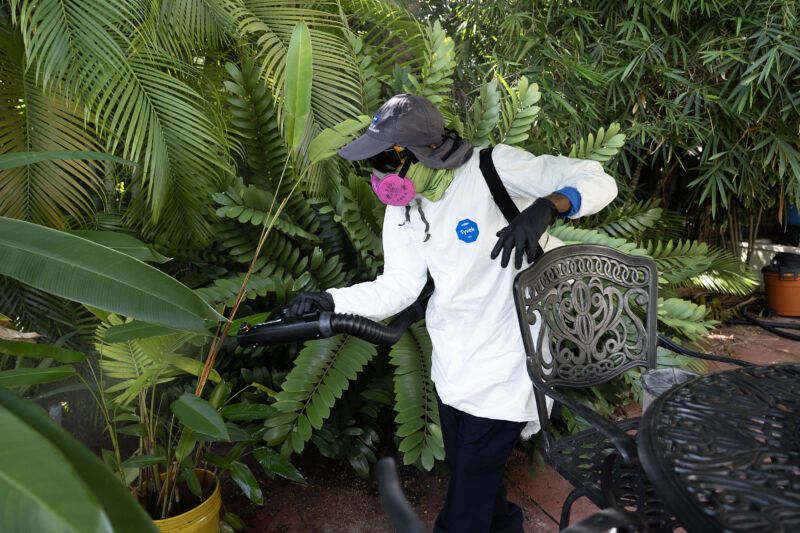
Three mosquitoes collected near Sarasota, Florida, have tested positive for malaria amid an unusual cluster of locally acquired cases. It is the first time in two decades that US mosquitoes have tested positive for malaria in connection to US-based cases.
Four cases have so far been confirmed in Florida, all in close geographic proximity, health officials reported on Monday. The Sarasota Herald-Tribune reported Wednesday that officials are investigating a possible fifth case.
With outbreak response efforts ongoing, officials have been trapping and testing local mosquitoes. In a statement to CBS News, Sarasota County Mosquito Management Services manager said the three positive insects were among more than a hundred sent to the Centers for Disease Control and Prevention for testing.
Meanwhile, efforts to stamp out the flare-up include door-to-door efforts to inform residents of the cases, as well as insecticide spraying from trucks and aircraft.
The mosquitoes that transmit the malaria parasite are of the Anopheles genus. There are multiple species of Anopheles mosquitoes in the US, which have been found in at least 32 states.
Low risk
In this case, the Anopheles species caught spreading the parasite is a type of nighttime biter—not typically active during the day or evenings, like some other Anopheles species. The species also tends to concentrate and breed around freshwater swamps. That’s all according to Christopher Lesser, the director of Manatee County Mosquito Control District, who spoke with the Herald-Tribune. (Manatee County, just north of Sarasota, is also responding to the cases).
The cluster of locally acquired malaria cases around Sarasota—as well as an unrelated case in Texas—marks the first time the parasite is known to have spread in the US since 2003, when there was a cluster of cases in Palm Beach, Florida. In that outbreak, no captured mosquitoes were found to be positive for malaria.
However, an investigation around a cluster of locally acquired cases in Loudon County, Virginia, in 2002 turned up malaria-positive mosquitoes. It was the first time since 1957 that US mosquitoes linked to locally acquired cases had tested positive for a malaria parasite.
In a national health alert Monday, the CDC urged clinicians to look for malaria cases in people without travel-related risks, particularly in areas near the Florida and Texas cases. The clusters highlight the potential for reintroduction and reemergence in the US, given global travel and climate change. But, the CDC notes that, in general, the “risk of locally acquired malaria remains extremely low in the United States.”
https://arstechnica.com/?p=1951350

